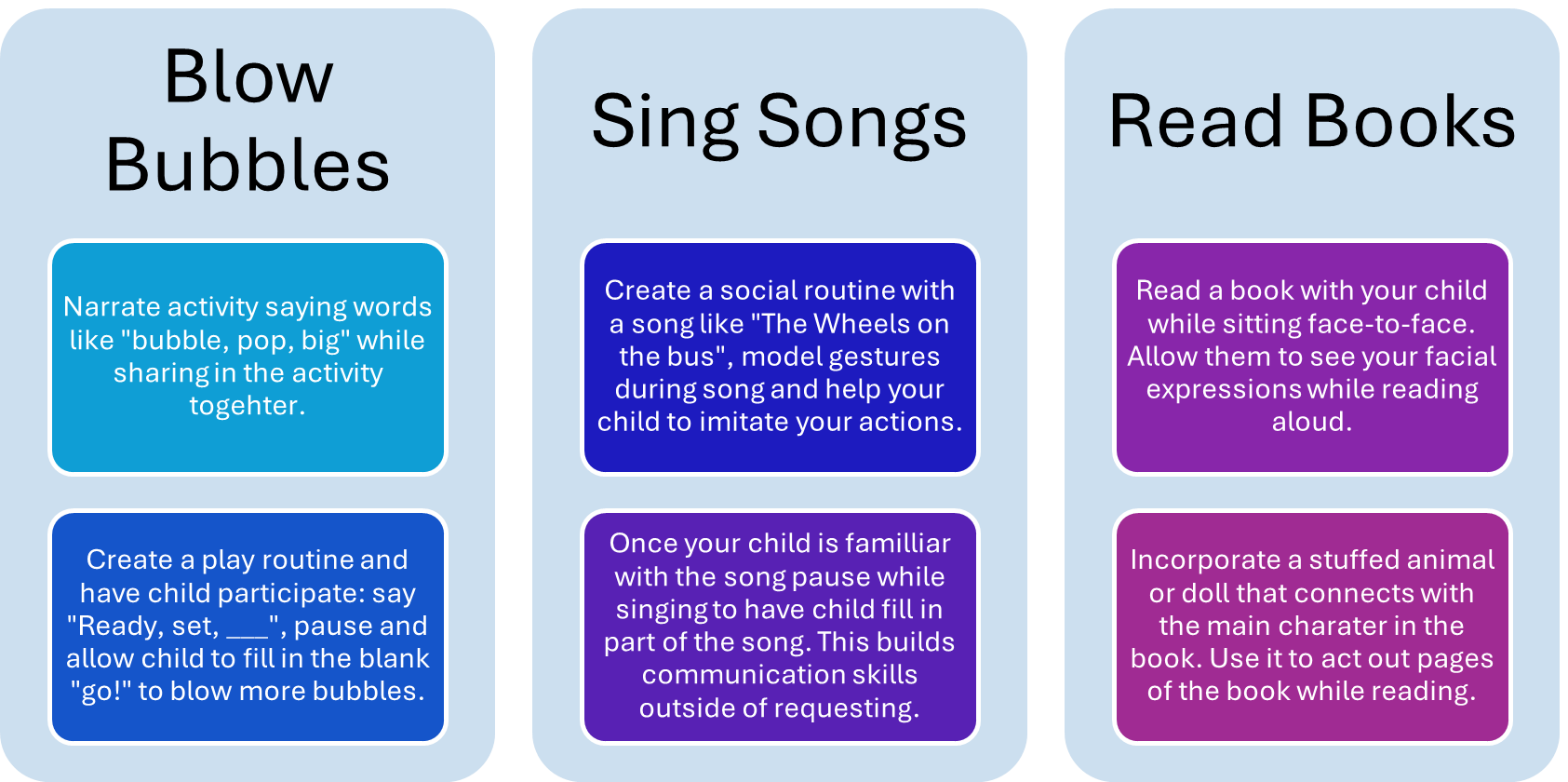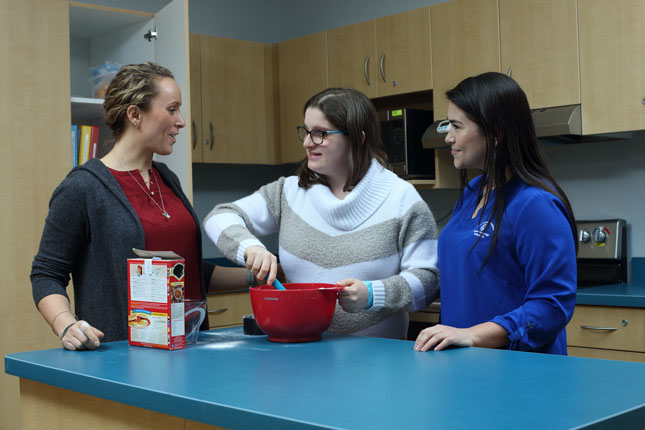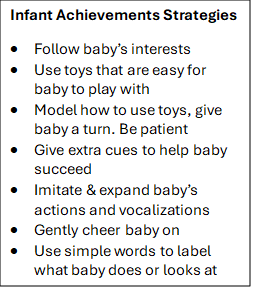Letter From the Director

At CASSI, our commitment to improving the lives of individuals with autism drives everything we do, from cutting-edge research to innovative interventions. In this edition, I’m thrilled to share some of the exciting work we’re doing to enhance social communication outcomes for young children. Through federal funding, we are examining whether telehealth parent coaching works as well as in-person coaching. If it does, there will be scientific support for this approach, opening up new possibilities for families who face challenges accessing in-person services and bringing expert guidance directly into their homes.
We’re also broadening our support for autistic teens and young adults. We have expanded programs focusing on life skills like job readiness, emotional regulation, and social connection, helping to build the foundation for a successful, independent future.
In addition, our Infant Achievements program continues to make a meaningful impact, empowering parents to support their infant’s social communication development. The results speak for themselves—early intervention truly makes all the difference, and we are proud of the transformative outcomes we are seeing.
In addition, our research has shown that our Infant Achievements program makes a meaningful impact, empowering parents to support their infant’s social communication development, starting as young as 8 months of age. The results of our study speak for themselves—early intervention truly makes a big difference, and we are proud of the transformative outcomes that result when parents learn to use certain strategies during interactions with their infant.
Together, we are creating real, lasting change.
Warmly,
Rebecca Landa, PhD, CCC-SLP
Founder and Executive Director, CASSI
Kennedy Krieger Institute

Improving Social Communication Outcomes
Early intervention for toddlers with autism is important for developing skills that will lay the foundation for learning across a lifetime. Researchers at Kennedy Krieger Institute’s Center for Autism Services Science and Innovation (CASSI) are the first to examine whether a telehealth parent coaching model has similar outcomes to an in-person parent coaching model. Both intervention options aim to improve social communication outcomes in toddlers with autism or social communication delays. Understanding the comparison of early intervention access options is important because many families are unable to access specialty clinicians or intervention centers. If shown that both in-person and telehealth parent coaching models have similar effects, this could lead to greater accessibility of services and improved outcomes of young children with autism or other social communication difficulties.

Parent coaching strategies taught in the telehealth and in-person settings in this study use evidence-based strategies that combine principles from behavioral and developmental approaches. Here are some activities you can do with your child at home to improve social communication skills and build on skills beyond requesting.
To learn more about this research opportunity, click here to view the study flyer.
Expanding Support for Teens and Young Adults at CASSI
Over the past decade, CASSI has significantly expanded its services for teens and young adults, ensuring comprehensive care across disciplines. Our multidisciplinary team includes experts in psychology, social work, speech-language pathology, occupational therapy, and medicine - each offering specialized services tailored to the unique needs of adolescents and young adults.
Our multidisciplinary team evaluations are designed to support individuals and families as they navigate the transition to adulthood. These evaluations help update assessments, connect families with essential services, and guide planning for the critical changes that occur at age 18.

We now offer both individual therapy and group programs focused on social and life skills at multiple locations. These groups provide opportunities for teens to build essential skills such as:
- Meal preparation and clean-up
- Home care and organization
- Budgeting and money management
- Job readiness and interview preparation
- Navigation and wayfinding
- Leisure and relaxation strategies
- Emotional regulation and self-advocacy
- Social and relationship-building skills
All programs are delivered in environments that respect and support neurodivergent perspectives, fostering growth and confidence in a safe, inclusive space. To further increase accessibility, many of our services are also available via telehealth, allowing clients to practice and reinforce skills in their home environments.
In addition to our clinical offerings, CASSI continues to invest in professional development and community engagement. Our internal workgroups have launched a new speaker series, Navigating Young Adulthood, to explore the challenges and opportunities of this critical life stage.
A recent parent shared, “It was challenging for my son, but he had a lot of fun too! He still talks about this group and hopes to do another.”
CASSI 23rd Annual Conference

Breaking Barriers, Building Futures: Celebrating 30 Years of Empowering Lives
📅 October 17, 2025
🌐 Register at: KennedyKrieger.org/AutismConference2025
This year marks a powerful milestone—the 30th anniversary of the Center for Autism Services, Science, and Innovation (CASSI). We invite families, educators, clinicians, and community partners to join us in honoring three decades of progress and possibility.
The conference will feature:
- 12 breakout sessions and 2 extended learning opportunities
- Visionary keynote speakers
- Opportunities to earn continuing education units (CEUs)
- Keynote Highlights:
- Dr. Zack Warren will explore how intelligent technologies are reshaping autism care—from early innovations to tools that personalize diagnosis, learning, and clinical support.
- Dr. Stephen Shore will share his personal autism journey and challenge us to shift from deficit-based thinking to strength-based action, inspiring appreciation, and inclusion at every level.
Can’t attend in person?
Online access to conference content will be available after the event—so you won’t miss a moment of inspiration.
Together, we’ll celebrate the past, engage with the present, and build a future where every autistic individual is empowered to thrive.
Celebrating 30 Years of CASSI
On June 4, we celebrated 30 years of the Center for Autism Services, Science and Innovation (CASSI) at Kennedy Krieger Institute. The evening brought together collaborators, advocates, and community partners—all united by a shared purpose: improving the lives of individuals with autism.
👉 See Photos from CASSI’s 30th Anniversary Celebration
New connections were made, plans for future collaborations took shape, and the energy in the room reminded us that CASSI is more than a center—it’s a movement. With your continued support, we look forward to advancing innovation, inclusion, and impact for the next 30 years and beyond.
4th Annual Center for Autism Charity Golf Outing
What a Day on the Green!
WOW! Thanks to your incredible support, the 4th Annual CASSI Golf Outing was a huge success, raising $87,000+ for the CASSI Compassionate Care Fund! Your participation is helping families access critical resources and programs.

From the exciting rounds of golf to the fun-filled Tees & Tastings, and of course, the Best Dressed Foursome showing off their creative outfits, the energy was unstoppable. A huge thank you to our participants and sponsors. Your enthusiasm and generosity made this day unforgettable.
Relive the highlights and see all the fun:
👉 View Event Photos
We can’t wait for next year’s 5th Annual CASSI Golf Outing—stay tuned for the Save the Date!
OT Input on Water Safety
As families enjoy time near pools, lakes, and beaches, it’s crucial to highlight the importance of water safety. Autistic individuals are at a higher risk of drowning due to factors such as a tendency to wander, limited awareness of danger, and sensory differences can increase vulnerability around water. At our clinic, we emphasize proactive safety planning. Families are encouraged to consider swim lessons that are tailored to autistic individuals, which many local organizations and YMCAs in Maryland now offer. These programs not only teach swimming skills but also reinforce water safety rules in a sensory-friendly and supportive environment. Supervision remains key—never leave a child unattended near any body of water, no matter how shallow. Installing barriers around home pools, using life jackets, and practicing water safety drills can add essential layers of protection. Water play can be a joyful and therapeutic experience. With the right precautions and education, we can ensure it remains a safe one.
Many children with ASD struggle to learn new motor and/or cognitive skills, and swimming, particularly safe swimming, requires both. Aquatic occupational therapy provides many benefits for children with ASD including improving motor skills, improving body awareness, assisting with sensory regulation and improving attention and focus. Enrolling in swimming lessons or aquatic occupational therapy during the fall, winter and spring, will help to prepare your child for a more enjoyable and safe water experience next year!
Early Intervention for Social Communication Delay in Infants

CASSI is known for cutting-edge research that advances the science focused on autism and child development. Based on her research about how babies learn, Dr. Landa developed an innovative method (Infant Achievements) for helping parents connect with their social communication delayed infant. We studied the impact of the Infant Achievements (IA) parent coaching program on parents’ use of the IA strategies when playing with their baby. We also studied the impact of the IA intervention on babies’ social communication learning.
In this study, babies were between 8 and 12 months old and had social communication delay. Parent-baby pairs were placed into the IA coaching group or the group that received education about infant development (Parent Coaching group). In the IA intervention group, parents learned to use certain naturalistic developmental behavioral intervention (NDBI) strategies while playing with their baby (see some examples in the box). The CASSI team coached the IA parents in their homes16 times over 8 weeks. IA parents learned about what types of toys help babies learn to play, communicate, and socially connect with them more effectively. Parents also use simple words, like “ball, go, boo, in, up” repeatedly during relevant and meaningful play and social activities with the toy. Parents in the IA intervention showed greater use of the IA strategies compared to parents who received the parent education but no coaching. We found that the IA parents kept using the IA strategies even after they no longer received coaching. Babies in the IA group also made greater gains in social communication development, nonverbal cognitive development, and speech-related skills than babies of parents in the parent education group. This study highlights the importance of empowering parents of infants with social communication delays to use specific communication-enhancing NDBI strategies to boost children’s social and communication development. A take-home implication is this: Don’t wait and see. If a baby is showing signs of delay in social, communication, or play development, seek an assessment. If intervention is needed, seek it out! Results of this intervention study were recently published in Autism Research (Landa, Reetzke & Hess, May 2025).
